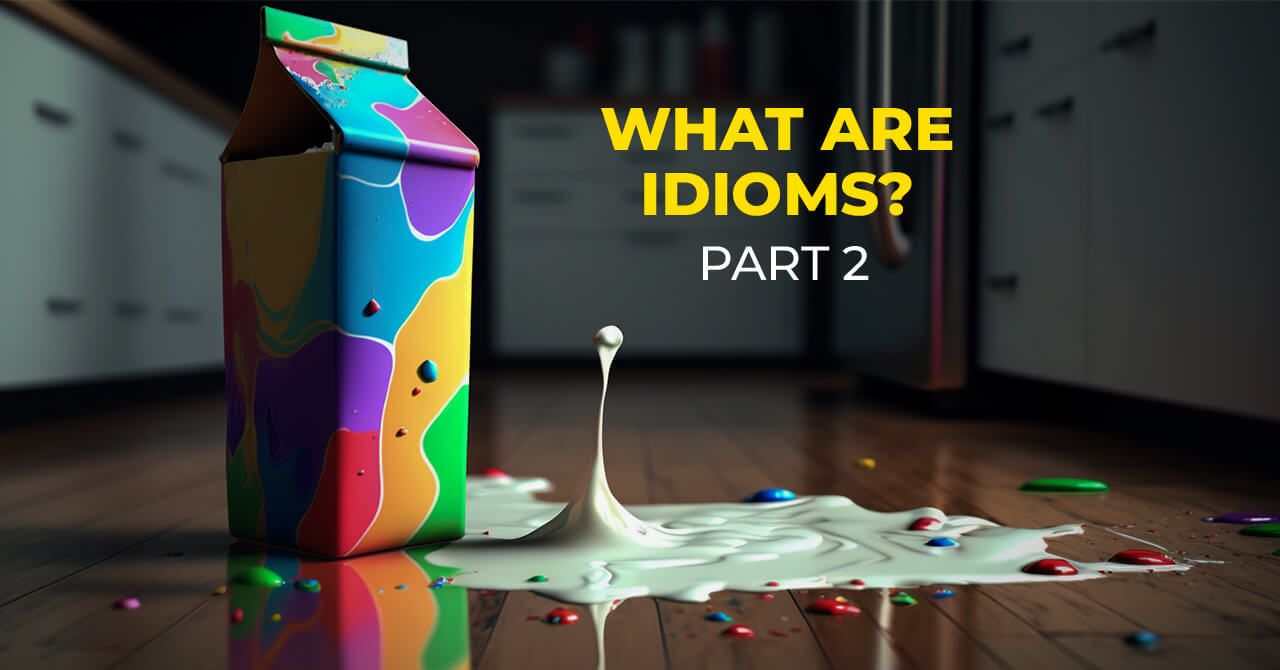
What Are Idioms And How to Understand Them? Part 2
Sometimes some idiomatic expressions like clichés, proverbs, and euphemisms can be considered a part of idioms, but they are not! We will discuss that, among other things.
Idioms vs. Cliche
Cliché can be an idiom, but idioms are not always clichés. Don’t get the two confused. Clichés are expressions or phrases that are worn out to the extremity where they lose their meaning and stipulate a lack of original thoughts. For example, many people have heard this and felt better after a breakup: “Don’t worry, there is plenty of fish in the sea.” The phrase has been used so often that it fails to have any effect.
Idioms vs. Proverbs
Proverbs are similar to idioms in meaning because they can’t be understood by looking at the individual words. Proverbs are used to give advice to somebody else. Don’t get the two confused! For example, when someone says: “Don’t cry over spilled milk,” they are telling someone not to worry about something that’s already happened. The phrase doesn’t mean someone is crying, and it got nothing to do with milk. Again, proverbs can be idioms, but idioms are not all the time proverbs.
Idioms vs. Euphemisms
Euphemism is a type of idiom that is used to study sensitive or taboo subjects in a polite or understated way. Even if you’re personally not made uneasy by a topic, there is still a chance that you’re using euphemisms around it purely because they are common to the extremity of cliché. Subject matter like death and money has plentifulness of euphemisms. For example, “he kicked the bucket” is a euphemism for “he died” (also known to be an idiom).
When are idioms used?
A speaker or writer frequently uses idioms to carry a message to someone else in a more creative way. Think of them as a type of seasoning that prevents your conversation or writing from being too boring. Instead of saying “you’re right” various times, you might want to throw in “you hit the nail on the head” or even “bingo” for a bit of variety.
Idioms can also be used to stop your writing from appearing too dry or formal, but they can also be used to connect with the reader.
Another type of idiomatic expression used by fluent English speakers is called collocations, or in other words—a combination of words that have a specific meaning.
I'm an English teacher and passionate about working with children and teaching children innovative ways to better communicate in their environment. Don't hesitate to book a lesson with me!

